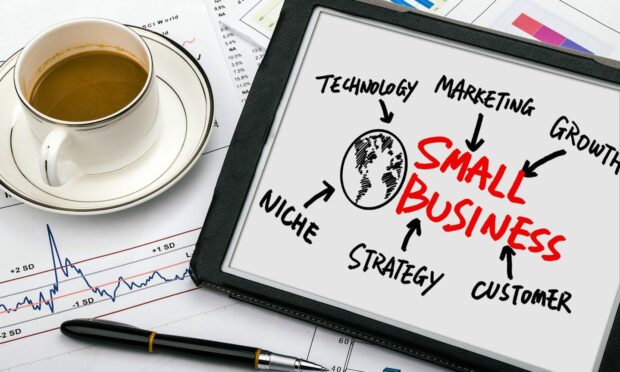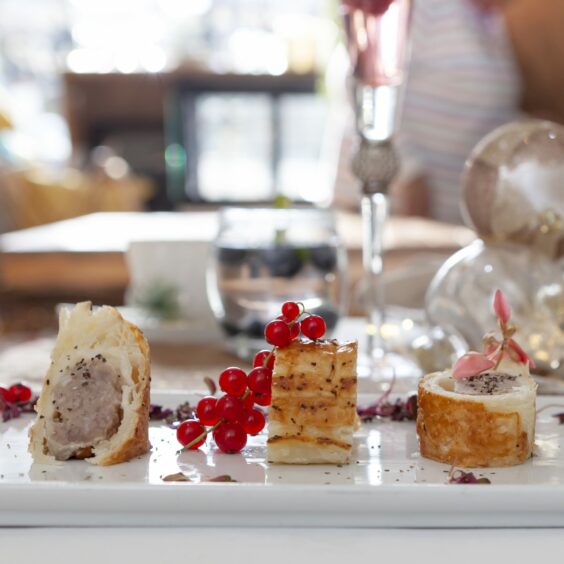The north-east’s small business community is expected to be the driving force behind the area’s return to growth and economic prosperity after difficult times for both firms and consumers.
That is the view of Mike Duncan, development manager for the Federation of Small Businesses (FSB) in the region.
He has been in the post for just a matter of weeks, but is already acutely aware of the challenges facing the beleaguered business community.
Mr Duncan said: “They have battled through Brexit, persevered through the pandemic and are now crippled by the soaring costs of just keeping going.
“Of course, these immense challenges are not just stand-alone events that we can weather for a few months and then move on – even if our businesses are still here to move on.
“They have far-reaching consequences that will affect business decision-making at every turn and be the focus of FSB lobbying for years to come.”
It is perhaps fair to say the north-east has yet to see any positive impacts from Brexit, Mr Duncan said.
He added: “What we have seen is increasing and confusing bureaucracy when it comes to exchanging goods with our near-neighbours, and the critical loss of the skilled employees we need to drive our rural economy.
“Many hospitality businesses across Aberdeenshire and Moray are closing their restaurants. These decisions are not taken lightly, but a combination of lack of staff, rocketing energy costs and inflationary pressures on food make it an understandable business decision nonetheless.”
Supply chain impact
This has a knock-on impact, Mr Duncan said, adding: “Our hotels and restaurants are brilliant at showcasing locally-produced food and drink, from seafood and beef to organic vegetables, beer, gin and whisky.
“It is no surprise that, when a restaurant scales back or closes down, the impact on the wider supply chain ripples out across the local landscape, and threatens jobs and livelihoods throughout the area.
👀This week's #SmallBusinessFocus with @pressjournal looks at @FSB_Scotland member, Nick Underhill, and his fantastic business, #Aberdeenshire Logs 👇https://t.co/9ml6z4ulMY
— Mike Duncan FSB (@FSB_MikeD) October 10, 2022
“And it’s not just the hospitality sector that is threatened by the rising cost of energy.
“Against the national trend, manufacturing has been booming in Moray.
“But creating high quality, precision products is an energy-intensive business.
“For FSB, the price cap on the unit cost of business energy is very welcome and a clear lobbying victory that provides the small business sector with some energy cost security over the cold winter months.
“However, it cannot be forgotten that capping the cost at an already astronomically-high figure is unsustainable in the medium term and unthinkable over a longer period.
Cliff-edge energy bill fear
“For the small business owner or the self-employed, there is little security in knowing thousands could be added to your electricity bill at the end of March, when the energy relief is due to expire.
“Added to that, many businesses across the north-east must set their prices now in order to secure bookings and orders for the year ahead.
“The challenges are clear – should they assume that costs and inflation will continue to rise and, therefore, increase their prices accordingly, or should they keep their prices constant in an effort to remain competitive and attract new business?”
Our smallest businesses are fed up being described as ‘resilient’ and ‘nimble’, and really wish they didn’t have to be.”
Mike Duncan, Federation of Small Businesses.
Mr Duncan urged the Scottish and UK governments to work together to do all they can to support business owners who will drag their companies up a mountain over the winter, only to find themselves teetering on a cliff-edge come spring.
He continued: “For many, spring feels like a long way away. Yet even during times of adversity I still hear heart-warming success stories as I travel the north-east, talking to small business owners, and meeting the relevant support agencies and council departments that make efforts to help.
“Our smallest businesses are fed up being described as ‘resilient’ and ‘nimble’, and really wish they didn’t have to be.
“Yet – when profit margins are squeezed into the negative, when skilled employees are leaving and others can’t be found, and when external factors are pushing up each and every cost – it is our local small business community that will be the driving force behind a return to growth and economic prosperity. They are very creative, after all.”
Bev’s Bistro battles to balance the books in Aberdeen
When you hear about the harsh impact of the cost-of-living crisis on UK firms, it can be difficult to understand what the actual reality of the situation for small businesses is if you are not on the front line yourself.
Trying to balance the books when you may now have thousands of pounds less a month coming into your operation, while having thousands of pounds more a month going out, can be a nightmare.
Most small and medium-sized businesses have a battle on their hands, and Bev Lee, of Bev’s Bistro on Holburn Street, Aberdeen, is no different.
She has an independent cafe bistro specialising in good, old-fashioned wholesome food made from natural ingredients and locally sourced, seasonal produce.
So what has been the impact so far of the cost-of-living crisis on Ms Lee?
She said: “Customers are definitely spending less on going out to eat and on takeaways.
“I have seen a decrease of £4,000 per month on customer spending over the last few months, compared to this time last year.
“Alongside this, my costs of running the business have increased by £2,000 per month.”
Electricity bills, in particular, have been on Ms Lee’s mind a lot lately.
She said: “I have had to very carefully consider all my electricity usage and find inventive ways of keeping costs to a minimum.
“I was hoping to reopen for walk-in customers after Covid but have been unable to.
“For the small numbers of people – a handful a week – who come to the door, it is not financially viable to have the lights on all day, heating, coffee machine and the stock to be able to serve them.
“Everything is pre-booking only so I can control my costs.
Customers are definitely spending less on going out to eat and on takeaways.”
Bev Lee, Bev’s Bistro.
“I have also changed my heating to infra-red heaters, altered my dishwasher usage, switched from an oven to a small air-fryer oven, changed to a pressure cooker, replaced the front door to save losing heat, switched to motion-sensor lights in the bathroom, and all the light bulbs have been changed to LEDs.
“In addition, I changed how I use my fridges and freezers. I am shopping daily to enable me to switch off four fridges, as well as monitoring my electricity on a daily basis.
“Even with these changes, my costs for electricity are still three times a year ago.”
Ms Lee said she was constantly trying to find new ways to reduce costs, and holding regular staff meetings to find better ways of working.
Finding the right ingredients for business survival
She added: “I am just trying my best to make sure I have all the right ingredients in place to get through the winter months.
“I will do everything I can to ensure that my business continues to thrive, but it is very tough – emotionally and financially.
“This winter is going to be very tough on all hospitality, with people having to make very difficult decisions. But, if we can get through the winter months, I think it will make us all stronger.”






Conversation